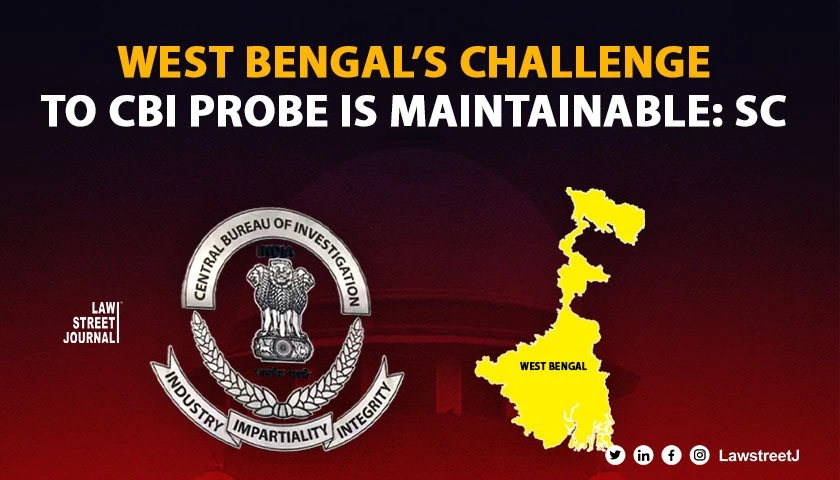NEW DELHI: The Supreme Court on Wednesday rejected a preliminary objections by the Union government to an original suit filed by the West Bengal government alleging that the CBI continued to probe cases in the state, even after withdrawal of consent.
A bench of Justices B R Gavai and Sandeep Mehta held that the suit was maintainable and fixed the matter in August for framing of issues and for adjudication in September.
Reading out excerpts of the judgment, Justice Gavai said the contentions of the Centre cannot be accepted and the suit shall proceed for consideration on its merits.
The court relied upon the Delhi Special Police Establishment Act and the Supreme Court Rules to arrive at its conclusion that the plaint disclosed the cause of action as the State alleged the CBI continued to register cases in constitutional overreach after withdrawal of the consent.
The top court had on May 8 reserved its judgement by wrapping up the hearing on preliminary objections made by the Centre on maintainability of the suit filed under Article 131 of the Constitution.
Article 131 of the Constitution deals with the Supreme Court's original jurisdiction in a dispute between the Centre and one or more states.
Solicitor General Tushar Mehta, appearing for the Centre, had told the court that a state government cannot claim a right to issue omnibus, sweeping, and overarching directions to withdraw consent for a CBI probe into any matter. "The state government can exercise the power to grant/refuse consent only on a case-to-case basis only," Mehta said.
He asked the court to dismiss the suit.
The SG also said the CBI is not under the Centre. It is an independent body and not the one coming under the central government. Therefore, the central government cannot be sued in the matter.
He had further accused the West Bengal government of trying to litigate the same issue in two different cases before the apex court.
Senior advocate Kapil Sibal, for the WB government, told the court that the CBI could not probe cases concerning West Bengal without the state government's general consent.
"The Delhi Special Police Establishment Act impacts the federal structure of this country. General Consent is necessary before you get entry in the State," he said.
He also pointed out that once the CBI got foothold in a State, soon after the ED also entered for investigating the predicate offence. "It has huge ramifications on the polity of this country. All of this has enormous implications for the Indian polity," he said.
The WB government had on November 16, 2018, withdrew the general consent accorded to the CBI to conduct probe and raids in the State.
In its suit, the state government alleged that the CBI has been filing FIRs and proceeding with its probe, despite the state having withdrawn the general consent to the federal agency to probe cases within its territorial jurisdiction.















